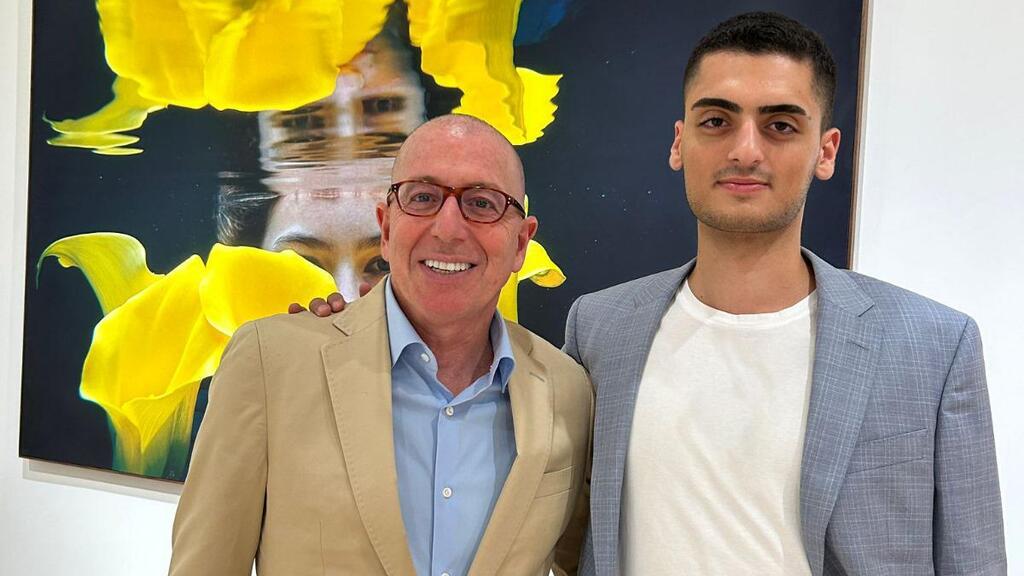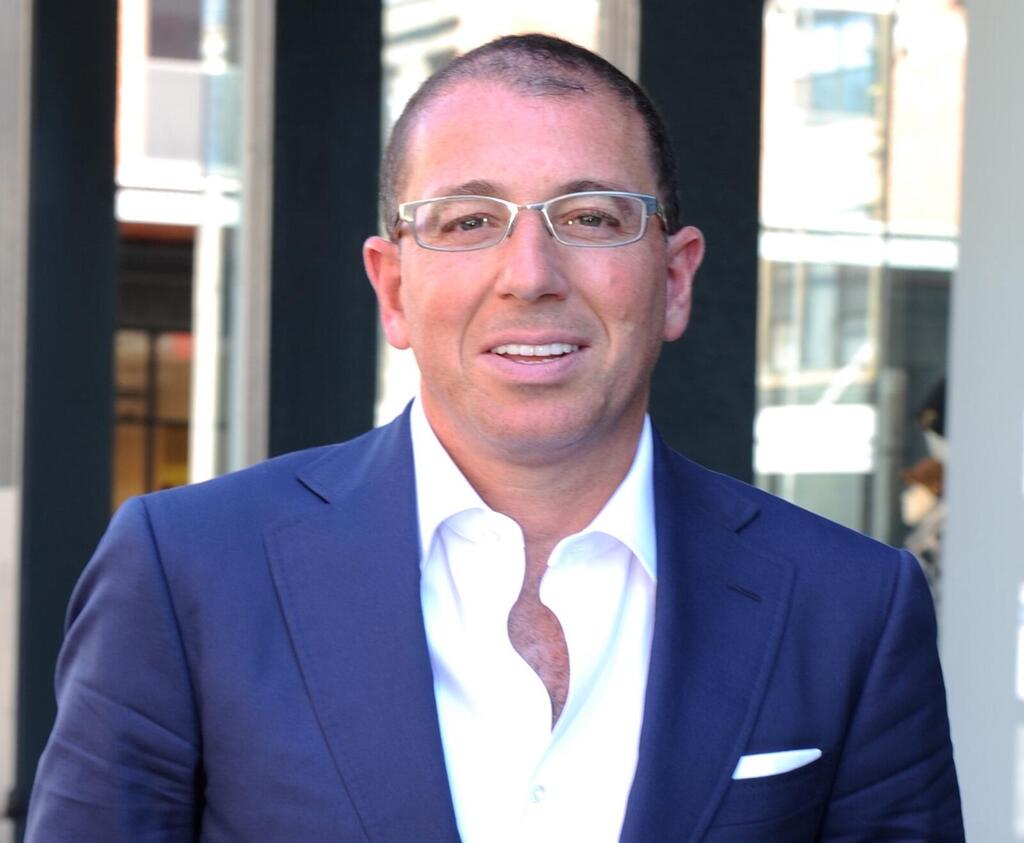Getting your Trinity Audio player ready...
American business pioneer Joseph J. Sitt believes Israel’s industry is on the verge of a “second rebirth.” He points to a growing trend of people from all over the world moving here—not just Jews, but also entrepreneurs from Russia, Ukraine and beyond—who see Israel as an ideal launchpad for their businesses.
Sitt came to Israel not as a businessman, but as someone who cares deeply about Israeli society. He was brought to Israel by Yinon Gal On, who hosts under the radar regular events with the most influential and high-net-worth people in Israel and beyond. These events take place on a weekly basis with the goal of bridging the social gaps in Israeli society. The initiative is called “Worlds Meet,” and as part of this delegation, Gal On brought Joseph as part of the delegations to Israel that he organizes frequently.
Sitt, an American real estate investor, founder of the retail chain Ashley Stewart and head of the global real estate firm Thor Equities, which manages $20 billion in assets, has also been actively involved in shaping public opinion about Israel’s war in Gaza. He was among a group of billionaires and influential business leaders who privately pressed New York City’s mayor to deploy police to disperse pro-Palestinian protests at Columbia University a year ago.
According to a report in The Washington Post, these discussions took place within a WhatsApp group chat titled “Israel Current Events”, which was created shortly after the Hamas-led October 7 massacre. The chat eventually expanded to include about 100 prominent business leaders and financiers, including Sitt, who declined to discuss his efforts against anti-Israel activism and antisemitism.
Speaking to Ynetnews, Sitt, 50, says that he remains bullish on Israel despite being situated in the worst neighborhood on earth. While Silicon Valley continues to dominate global tech trends, he believes the future of the industry lies in Israel.
A few years ago, the United Arab Emirates was a market on the cusp of exponential growth, with booming industries and an insatiable appetite for innovation. Today, Sitt says, Israel is showing similar explosive potential.
“The same growth dynamics I saw in the UAE are happening right here in Israel,” he explained. “Industry, in every way, is about to boom, reboot and go through a second rebirth.”
Sitt, who studied business at NYU’s Stern School of Business and founded Thor Equities in 1986 while still a student, is struck by the sheer concentration of talent in Israel—including many who are neither Jewish nor Israeli-born.
“When I asked them why they chose Israel, not being Jewish, they said they looked around the world to where the greatest minds were, where the most sophisticated level of business and technology was happening—and they found no market more fruitful than Israel,” he said.
This is happening while major tech firms are downsizing globally, but still increasing their investments in Israel.
“They were saying that while the big tech companies are cutting jobs globally, the one place they’re actually growing their employee base is here in Israel. That’s something nobody is talking about,” he added.
One striking example is venture capital investment. While VC firms worldwide are scaling back due to economic pressures, some of the most active investors of 2024 are doubling down on Israel.
Among them is Andreessen Horowitz—one of the only top-tier venture capital firms that previously had no presence in Israel—which has now emerged as one of the most active investors in the country.
And it’s not just venture capital that’s betting on Israel—the country’s startups are tackling some of the biggest challenges in green energy and electric vehicle (EV) technology.
One of the greatest hurdles for renewable energy today is storage, a problem that Israeli startups like Ogwen are working to solve. The company is pioneering salt-based energy storage solutions, which could revolutionize the market.
“One of the biggest challenges green energy is really storage of energy, particularly large-scale storage for big operations,” Sitt explained. “And with the rise of data centers and other energy-intensive industries, the demand is only growing.”
Sitt also pointed to Electreon, an Israeli company rethinking EV charging by developing wireless, on-the-move charging solutions.
“The technology allows cars to charge remotely, without wires, while they’re moving,” he said. “The founder, Oren, who I met years ago, is a true visionary. He realized that if a phone can charge wirelessly, why can’t a car?”
Electreon is already testing its technology in 23 cities worldwide, including in Israel, Germany and the U.S., and major automakers are taking notice.
"As the company said one of the top global automakers—which would be like Toyota Motor Corporation, Volkswagon Group and Hyundai Motor — is integrating Electreon’s technology into all their cars. Once one major automaker gets on board, the rest will follow,” Sitt asserted.
He also points out that Israel has become an expert in defense technology.
“Defense technology will also be another massive boom industry in Israel. Given their extensive experience with modern warfare technology in Gaza, Lebanon, Iran, and Yemen, Israeli military technology experts are likely to transition into private sector defense ventures. Additionally, with global economies increasing their military spending budgets, this sector is poised for significant growth,” he said.
Sitt believes Israel’s growth will accelerate even further once peace comes to the region—and he’s convinced that day is closer than most expect.
“I have so many friends in leadership across the Middle East—UAE, Qatar, Saudi, Bahrain, Oman—who are genuinely working toward peace,” he said. “I think we’re much closer than people realize.”
Meanwhile, the industry that’s quietly setting up for a massive upswing here in Israel is real estate. While much of the world grapples with an oversupply of office space, Israel faces the opposite problem—there simply isn’t enough. The same goes for hospitality, industrial zones and high-end residential developments.
“While the whole world is suffering from too much office space, Israel doesn’t have enough. While industries are suffering, Israel doesn’t have enough. While hospitality is struggling, Israel doesn’t have enough. Industrial real estate? Israel doesn’t have enough,” Sitt asserts.
<< Get the Ynetnews app on your smartphone: Google Play: https://bit.ly/4eJ37pE | Apple App Store: https://bit.ly/3ZL7iNv >>
At the same time, It’s not just about capital flowing into Israel—it’s also about Israeli capital expanding abroad.
“I think the capital base of Israel’s institutional investors is going to grow geometrically, and they’ll start investing more globally,” he explained. “Markets like New York and Europe are experiencing distress, and Israeli investors now have a huge opportunity to take advantage of that.”
According to Sitt, Israel is at a major inflection point—and it’s not just another tech hub. Instead, he sees it as the world’s next great incubator for innovation.
“I’ll put it this way: the sun, the moon and the stars are aligning for Israel. The economic factors, the technological momentum and even the political shifts—everything is coming together,” he concluded.






